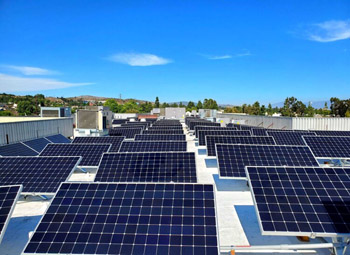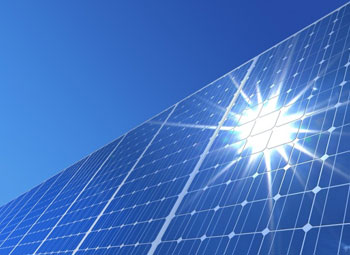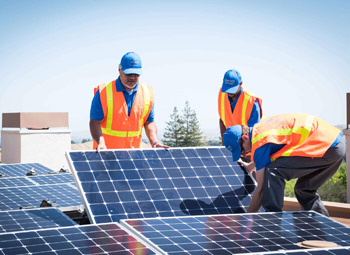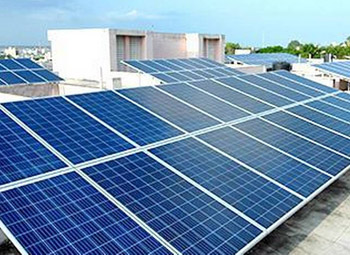What is solar energy?
The sun is an incredible and renewable resource that has the power to fuel life on earth and provide clean, sustainable energy to all of its inhabitants. In fact, more energy from the sun reaches our planet in one hour than is used by the entire population of the world in one year. The sun’s energy can be converted into electricity through solar photovoltaic (PV) modules (photo = light, voltaic = electricity).
How does solar energy work and why should we use solar energy?
PV modules absorb sunlight and convert the energy into a usable form of electrical current. The sun shines all over the world, making solar electricity viable anywhere. Because solar can be paired with batteries for energy storage, solar electric systems can be independent of the utility grid, making them cost-effective for remote locations. Solar modules have no moving parts making maintenance costs low, and they are highly reliable with a long service life of 25+ years of guaranteed electricity. Solar electricity relies on the sun as its fuel source, so there is no need to drill for petroleum-based fuels, refine them, or deliver them to the site. As you can see, there are a lot of advantages of solar energy.
The solar industry is growing
The design and installation of PV systems on a large scale enable us to move away from other polluting and unsustainable energy sources. Since the solar industry is growing, that means that the need for skilled workers is also growing!
Remote Energy (RE) is a 501 (c)(3) for-impact organization that trains women and men worldwide to harness the power of the sun and develop the technical PV design and installation skills required to bring clean power and positive change to their communities. Technician training programs provide the growing workforce with the practical skills needed to be competent and competitive. Solar educator training programs empower local trainers with curriculum, mentorship opportunities, and the skills needed to meet current, regional training requirements.
















